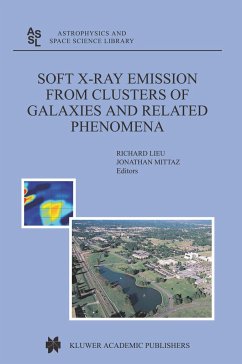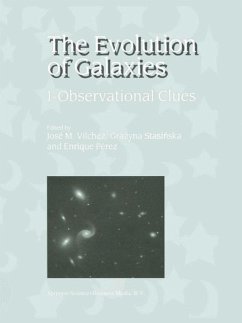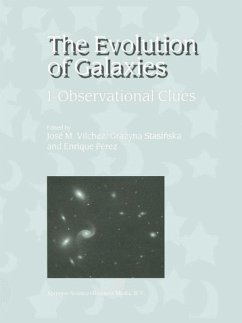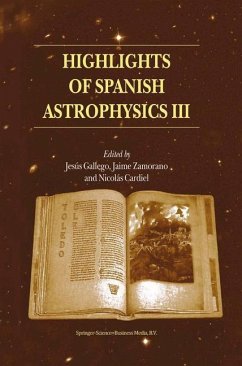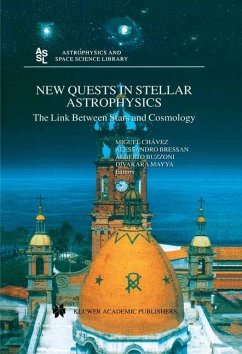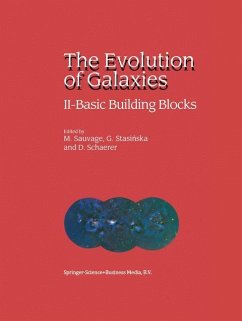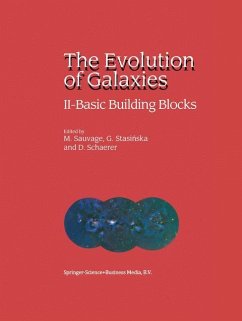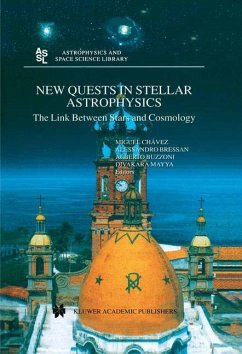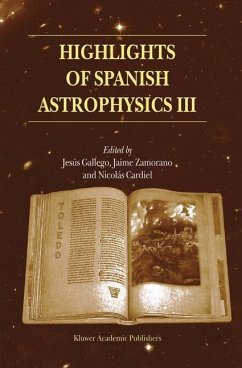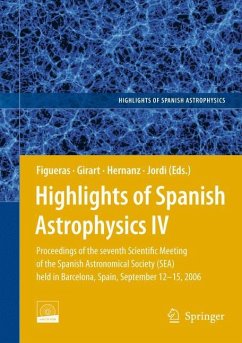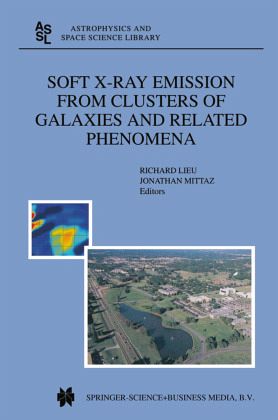
Soft X-Ray Emission from Clusters of Galaxies and Related Phenomena
Versandkostenfrei!
Versandfertig in 6-10 Tagen
76,99 €
inkl. MwSt.

PAYBACK Punkte
38 °P sammeln!
Since the discovery of the cluster soft excess (CSE) over eight years ago, its properties and origin have been the subject of debate. With the recent launch of new missions such as XMM-Newton and FUSE, we are beginning to answer some of the complex issues regarding the phenomenon. This conference proceedings is an attempt to bring together the latest research results and covers both observational and theoretical work on the CSE and related topics. One of the main topics is the possible relationship between the CSE and the warm-hot intergalactic medium (WHIM), which is believed to harbor 50% of...
Since the discovery of the cluster soft excess (CSE) over eight years ago, its properties and origin have been the subject of debate. With the recent launch of new missions such as XMM-Newton and FUSE, we are beginning to answer some of the complex issues regarding the phenomenon. This conference proceedings is an attempt to bring together the latest research results and covers both observational and theoretical work on the CSE and related topics. One of the main topics is the possible relationship between the CSE and the warm-hot intergalactic medium (WHIM), which is believed to harbor 50% of the baryons in the near Universe.
New data from both XMM-Newton and FUSE have indicated a possible causal link between the WHIM and CSE. Evidence is based on the apparent detection of O VII emission lines in the soft excess spectrum of the outskirts of several clusters, as well as reports of absorption lines at local and higher redshifts (seen in the spectra of distant sources) as signature of the WHIM. However, while there has been considerable optimism in attributing a substantial fraction of the cluster soft excess flux to WHIM emission, other work shows that, for example, the amount of WHIM material predicted by theoretical simulations falls way short of that necessary to account for the CSE. Other work indicates that at the cores of some cluster this excess emission is so strong, it is impossible to invoke the thermal model without at the same time enlisting radically new physics. Thus alternative interpretations involving non-thermal processes are also reported and being pursued in earnest.
Whatever the origin of CSE may turn out to be, results in this book show that it has become beyond reasonable doubt that the phenomenon itself is observationally established. This book reports the scientific progress made by bringing together scientists from a wide range of disciplines. It clearly demonstrates the importance of such meetings and participants if we are to solve this puzzle.
This volume is aimed at scientists and graduate students in astronomy who want to learn about the latest results on cluster soft excess observations and theoretical implications.
New data from both XMM-Newton and FUSE have indicated a possible causal link between the WHIM and CSE. Evidence is based on the apparent detection of O VII emission lines in the soft excess spectrum of the outskirts of several clusters, as well as reports of absorption lines at local and higher redshifts (seen in the spectra of distant sources) as signature of the WHIM. However, while there has been considerable optimism in attributing a substantial fraction of the cluster soft excess flux to WHIM emission, other work shows that, for example, the amount of WHIM material predicted by theoretical simulations falls way short of that necessary to account for the CSE. Other work indicates that at the cores of some cluster this excess emission is so strong, it is impossible to invoke the thermal model without at the same time enlisting radically new physics. Thus alternative interpretations involving non-thermal processes are also reported and being pursued in earnest.
Whatever the origin of CSE may turn out to be, results in this book show that it has become beyond reasonable doubt that the phenomenon itself is observationally established. This book reports the scientific progress made by bringing together scientists from a wide range of disciplines. It clearly demonstrates the importance of such meetings and participants if we are to solve this puzzle.
This volume is aimed at scientists and graduate students in astronomy who want to learn about the latest results on cluster soft excess observations and theoretical implications.





